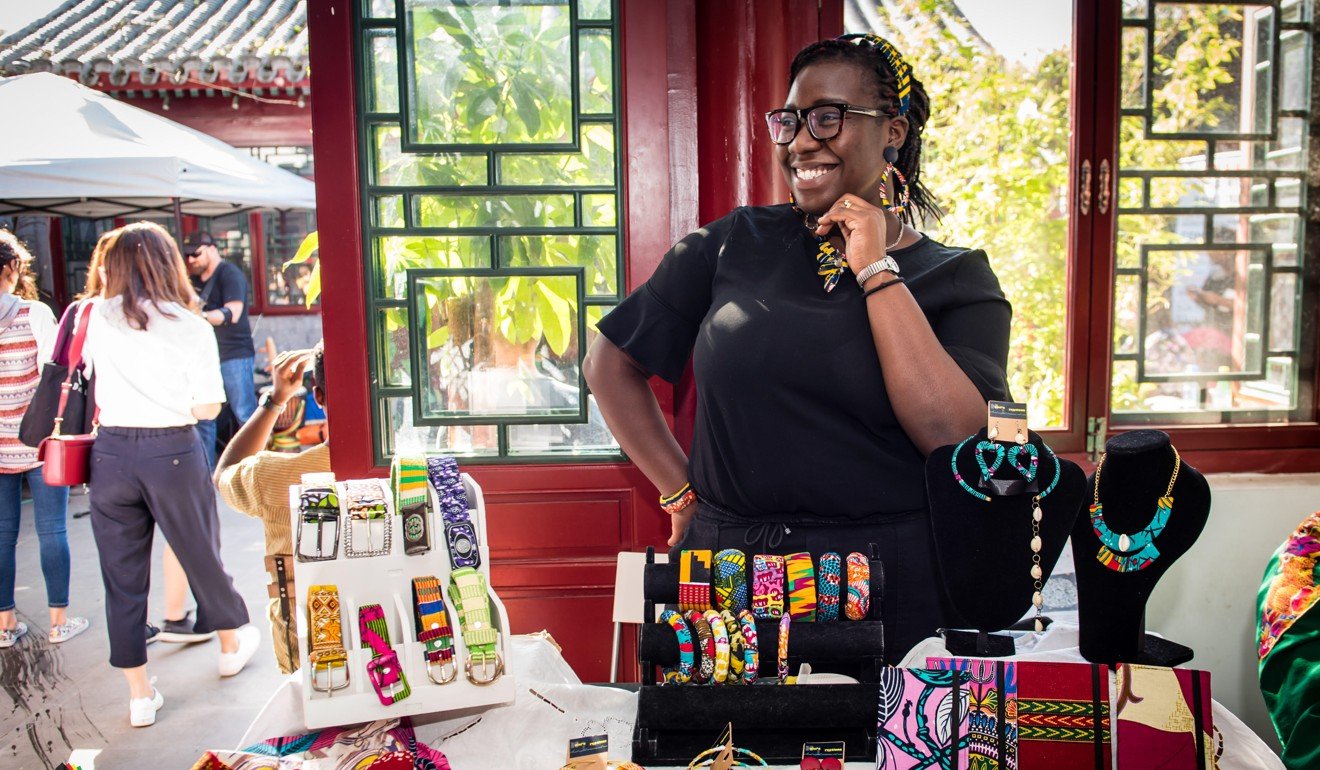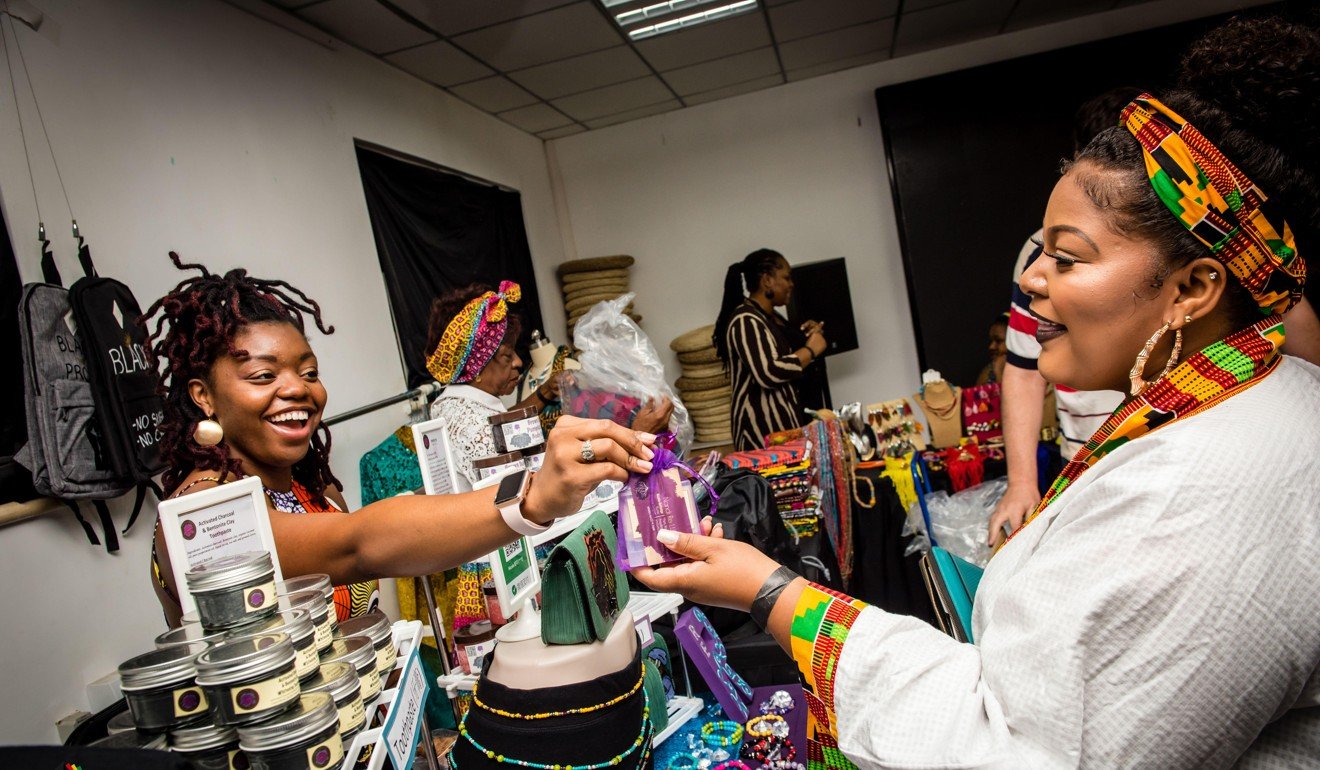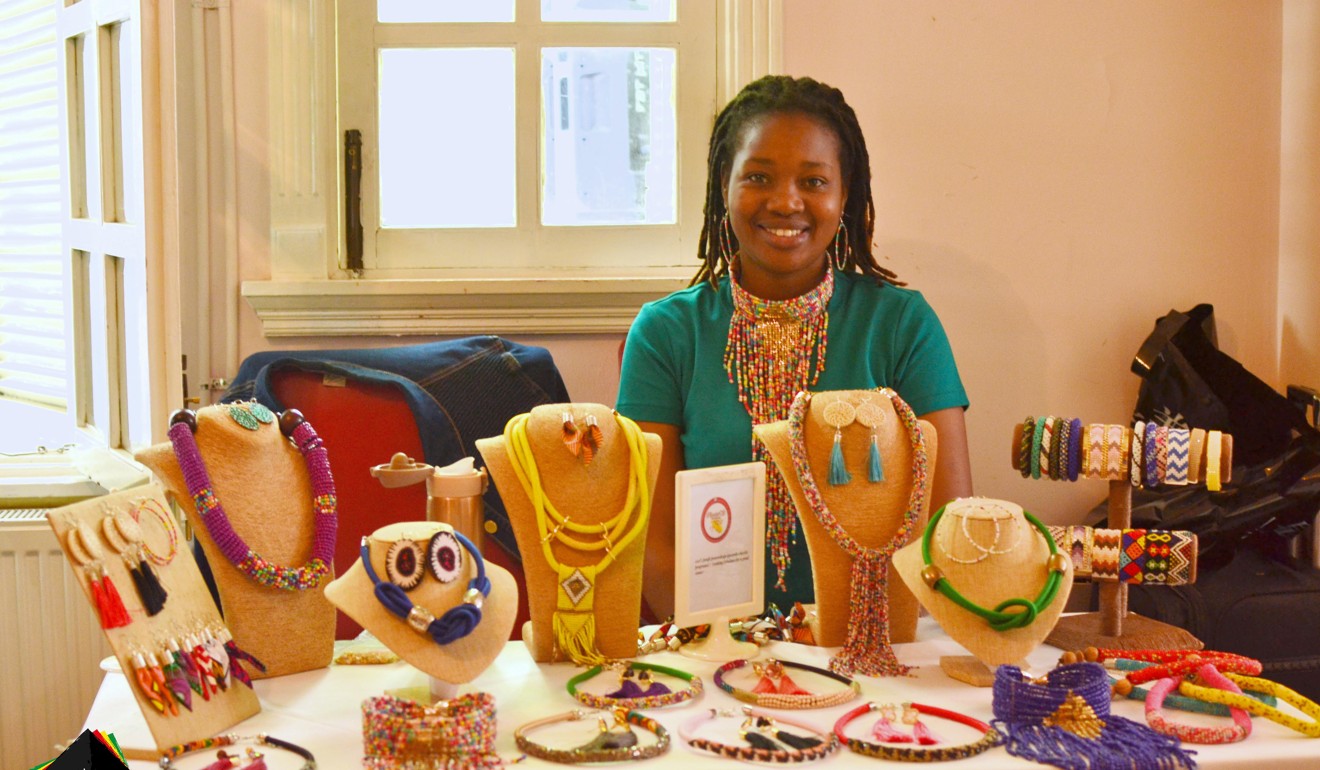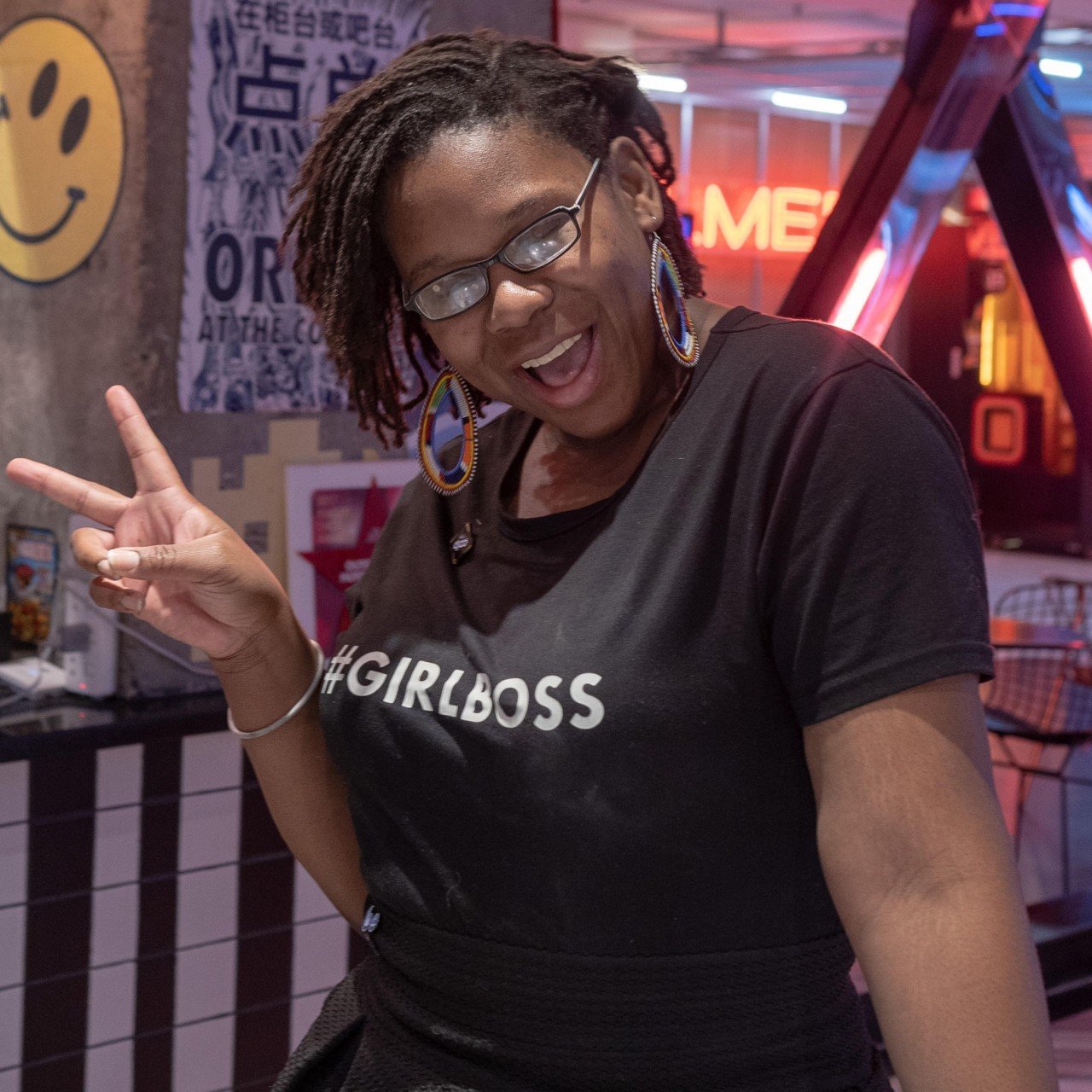Meet the woman behind BlackExpo, a platform dedicated to businesses run by the black community in China
- Olivia Nadine co-founded BlackExpo, China’s first physical market space for the black community, in 2017
- BlackExpo organises four events every year, twice a year in Beijing and Shanghai each, and last month launched an expo in Shenzhen too
“I remember every time I tried to find face cream here, it was always bleaching, or whitening,” she said. Nadine moved to Beijing permanently in 2016, after gaining a graduate degree in Asian studies and business from Georgetown University in Washington.
“You just can’t get certain products here. I would see on WeChat people asking where [they could] get shea butter, or this fabric, or this thing that is culturally relevant,” the 29-year-old said. “Someone would send a contact card [WeChat contact], but there wasn’t a stable place to find [these products].”
In 2017, she co-founded social enterprise BlackExpo, China’s first physical market space for the black community, with Ugandan artist James Sswerwadda in Beijing.

Getting a spot was hard and there was demand for culturally relevant produce among her peers.
“Some of the stuff we were looking for, you really just couldn’t find it on [Chinese e-commerce site] Taobao … or you couldn’t verify that it was good quality. You had to get it from another person, who knew the source, or was producing,” she said.
“There are all these people who do sell these things, but the markets are at capacity.” That’s when it came to her – why not have a market that highlights black vendors?
“We are also fulfilling a need for the vendors, who are getting sales days they were not getting otherwise,” Nadine said, anecdotally noting that some have had “record” sales days.
BlackExpo organises four events every year, twice a year in Beijing and Shanghai each, and last month launched an expo in Shenzhen, where two events will be held every year. Small businesses pay about 300 yuan for every event and sell everything from skincare products to fashion, art, literature and food, to hundreds of visitors, who pay 20 yuan to attend the events.
The first event attracted 500 visitors. About 40 businesses and start-ups have signed up for every expo so far.
BlackExpo has also managed to attract sponsorships from companies such as Gllyd, a Nigerian start-up similar to Uber that provides public transport using green technology. Nadine said there was a range of sponsorships available, with potential sponsors opting for anything from donating products to a raffle to sponsoring the venue.

Any profit generated by BlackExpo is put back into the business. The events generate enough to cover costs, such as those involving volunteers and performers, and investment in future events. “Within a year we have been able to build up within the China-wide black community, a pretty strong reputation,” Nadine said. She added that customers have travelled from as far as southern Guangzhou to get their hands on produce.
But the needs of the black community have not quite been met, said Nadine who has a self-professed “entrepreneurial spirit”. Next year, BlackExpo aims to expand to Seoul, Singapore and even Sweden.
Nadine has already taken a leap of faith, quitting her full-time job at think tank Carnegie-Tsinghua Centre for Global Policy this year to run her bakery business full time.
And by Lunar New Year, she said, BlackExpo aims to launch an e-commerce site followed by an incubator for companies founded by the black community.
“The in-person event is a beautiful, magical event, but it is only twice a year. In between, people still want products and vendors still want to be able to sell to a strong market,” she said. “People are still asking for contact cards, so that original problem we were trying to fix isn’t fully fixed.”
The site, she added, could compete with the likes of Alibaba Group Holding’s Taobao – the world’s largest e-commerce site – by offering niche products unavailable elsewhere.
“In a niche way, it does compete with [Taobao] and I’m really excited that it does,” she said. “A lot of foreigners are intimidated by the idea of opening up a Taobao shop. Most of the products that are for foreigners, by foreigners, are not there. Or if they are there, you are not always sure of the quality.”
For instance, it is hard to know if Ghanian shea butter, which must be stored in certain conditions, has been properly kept, she said.
Nadine and Sswerwadda also want to build a “social, lifestyle business incubator” that will advise businesses on how to grow in the Chinese market. “Part of what we want to do … down the road is funding and scholarships for these businesses”, but that, she said, will take investment.

It all comes back to when Nadine first sold her baked goods at a market.
“[It’s about] you having a great business idea and just wanting to figure out where to start – the same way I didn’t know there were markets until my co-workers said ‘You know, you can sell these brownies to people’.”
Source : South China Morning Post




Comments
Post a Comment